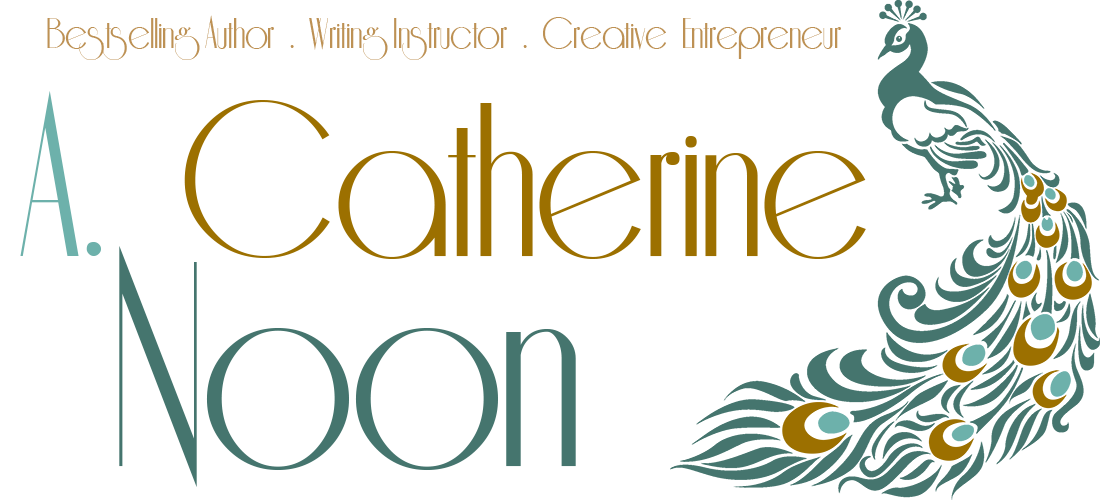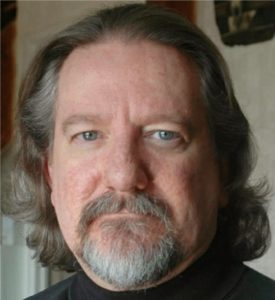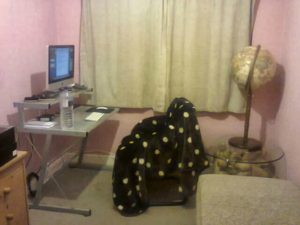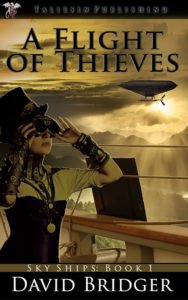Saturday Showcase: A Visit with David Bridger
I’m tickled to be able to bring you a talented and interesting author today. Author and retired Naval Officer David Bridger joins me from across the Atlantic to talk about writing, life, and his foray into the Young Adult space with his new book, A Flight of Thieves, Book 1 of the Skyships series.
ACN: I heard a broadcast on NPR (National Public Radio) recently, which is the public radio station here in the states. They interviewed the filmmaker of Twelve Years a Slave, as well as various actors and others in the film industry who have worked on similar projects recently. One of the comments was that “the money’s in the States, so if you want to make an expensive movie, you’ll eventually have to work there.” It got me thinking of the “four hundred pound gorilla,” if you will, relative to my friends who are authors in other countries and who write for audiences that aren’t exclusively American. How does “Americanization” affect your writing?
DB: It doesn’t affect my writing at all, but depending on the publisher it can affect the final product. I heard recently that some young Americans posted book reviews complaining about lots of spelling mistakes, when actually those books had been written and published with correct British spelling. I don’t concern myself with that sort of thing, but I suppose publishers have to decide whether or not they’ll take any notice of it.
So an example of a way in which Americanisation might affect me would be if a novel was set in contemporary Britain and populated with British characters, but my publisher’s house rules were to always use US spellings. That would feel odd, and would undoubtedly be scorned by my British readers. I’d just have to hope they would understand the decision wasn’t mine and would still be able to enjoy the book.
ACN: Writing in the Young Adult category is a departure for you. What made you take the plunge?
DB: I want to recapture the thrill of adventure and exploration, and to reconnect with the honesty and wisdom that is closest to the surface for many of us in our teens. I like and respect that in my readers.
ACN: Why steampunk?
DB: Airships, pirates, intelligent robots, adventure, friendship and loyalty, enemies and betrayal, an untamed world and the freedom to explore it, and, and, and breathe… ☺
ACN: How much period research went into writing A FLIGHT OF THIEVES?
DB: Apart from frontier-type medicine, very little. The steampunk elements are practical and arise from my future world’s ecological situation, rather than from social pressures or mores. My research was mostly about geography and steam engines.
ACN: What surprised you about writing A FLIGHT OF THIEVES?
DB: How the world grew. The story idea I started with was big on human action and impact, but it was contained within the quite small geographical area that is the Irish Sea and the coastal places around it. The world outside the immediate story grew fast while I was writing. That wasn’t a chore or a pressure. It was a delight, like hiking through unexplored lands discovering secret valleys and mountain ranges and isolated communities. So at the same time as I was writing A Flight of Thieves I found myself planning the rest of the Sky Ships series, and seeding into this first story elements that will take us all over the world later.
ACN: Where do you do your writing?
DB: In my study at the back of our house, which is cut into a hillside. (Photo below.) It’s warm and comfortable, with no distractions. Perfect.
ACN: What’s the worst piece of writing advice you ever got?
DB: “Show, don’t tell.”
Okay, we all know it’s right, in moderation. The problem with these nuggets of wisdom is that some people fashion them into hatchets and use them to chop hell out of other people’s good writing. It’s mindless fundamentalism, and you see it a lot in critting circles on certain writing sites. That’s the sort of place you’ll see me walking out of quicker than I walked in.
All I can say is, there are times when a story needs to move on, so its write just needs to tell. Not everything has to be shown. Imagine a novel in which every single thing was shown. Nothing would ever happen. And if it did, it would take so long we wouldn’t care anymore. There’s a time and place for everything, and my place is anywhere I can’t hear anyone standing on a soapbox shouting, “Show, don’t tell!” at people.
ACN: What’s it like being in the Royal Navy? Would you ever go back?
DB: I had a hell of a time. Some great highs, some terrible lows, and a lot of grinding-it-out sheer bloody hard work. As time went on I found myself attracted to working in small, specialised units. So I wouldn’t say my experience was typical, but I expect many people would say the same of theirs. It was just that I avoided big formal military outfits whenever I could.
I wouldn’t go back. For one thing, in the end it broke my body quite badly so I couldn’t do it now. But more importantly, I’d find it impossible nowadays to accept military stupidity, and that wasn’t easy even back then.
ACN: How did your experience in the Navy inform A FLIGHT OF THIEVES?
DB: Two ways: in the command structures and shipboard routines that I adopted and adapted; and in my old tendency to want to go off and work outside the big formal stuff.
ACN: If you could Captain a dirigible, what kind of craft (military, merchant marine, pirate) would it be and where would you ply your trade?
DB: I’d be a smuggler! Oh, yes! There are lots of coves and crannies along the coast where I live.
ACN: What’s it like living in England’s West Country?
DB: It’s the nearest thing to heaven on Earth that I’ve ever found. Green wooded hills, clean air, clean rainfall into our rivers and clean seas surrounding us. It’s beautiful and I love it.
ACN: You’ve lived a life full of adventure – Royal Navy, science-fiction and fantasy author, now YA author. What other careers interest you, if you retired from writing tomorrow?
DB: I’m an amateur archaeologist and years ago flirted with the idea of taking it up professionally, but it was a popular career choice and nowadays the industry is crammed full of people so I think I was right not to pursue it. Maybe an academic historian. In another life, maybe a Viking blacksmith. The truth is, I love writing and no other career would tempt me away from it.
ACN: If the leaders of the G20 gave you fifteen minutes to speak to them, what would you say?
DB: “You are a disgrace. You have the resources to end poverty, thirst and starvation in the world right now. Do it. Do it quickly before your souls wither any further into shameful corruption.”
I really appreciate David taking the time to put his thoughts to keyboard for us and look forward to the reading his book. Here’s a teaser to whet your appetite:
In a world of isolated island communities, a thousand years after Earth’s apocalyptic flood, Princess Victoria and her robot mentor, King Henry, recruit a ragtag band of airship adventurers to help her fight the military traitors who intend to murder her family and enslave the kingdom.
Victoria has spent all of her sixteen years in a secluded palace on Ben Nevis Island under the protection of King Henry, one of the three original robots programmed by the ancestors to rule the flooded planet Earth. She’s safe there, but her family and their intelligent clockwork servants treat her like the tomboy child she used to be—and sometimes still is. She yearns to fly away in one of the great iron airships to see the world.
It seems too good to be true when Henry asks Victoria to board the Royal Airship Elizabeth, with him disguised as her robot footman, and fly over the sea to meet the Lord of Ireland. Victoria jumps at the chance for an adventure and they take to the skies together. But the world is a dangerous place. Air pirates prowl trade routes, and slaver fleets cross the oceans to raid unprotected islands. The Royal Navy is building up to a war, and Henry’s old friend, the Lord of Ireland, is accused of giving safe harbor to pirates. Victoria and Henry must overcome them all in order to make their way home to a kingdom that might not still be standing.
Available from: Taliesin Publishing | Barnes and Noble | Amazon | Amazon UK
David Bridger settled with his family and their two monstrous dogs in England’s West Country after twenty years of ocean-based mischief, during which he worked as a lifeguard, a sailor, an intelligence gatherer and an investigator in the Royal Navy. He writes science fiction and fantasy for teens.





Thanks for interviewing me, and for your thought-provoking questions. It\’s my pleasure to be here. 🙂
What a terrific interview! I loved, \”ACN: Why steampunk?
DB: Airships, pirates, intelligent robots, adventure, friendship and loyalty, enemies and betrayal, an untamed world and the freedom to explore it, and, and, and breathe… ☺\”
And I really, really, really like the rant against \”Show, don\’t tell.\” That\’s one of those rules (like \”write what you know\”) that you have to know and know when to break.
Thanks, Barb! I\’m glad you enjoyed our interview.
Thank you for being interviewed, David! It\’s a pleasure to \”speak\” to you via email.
Barb, I appreciate you taking time to comment. I\’m glad you\’re here!
Terrific interview David. Loved learning more about you and your advice to the G20 is spot on! Can\’t wait to read A Flight of Thieves!
Thank you, Jianne! I hope you enjoy the read!
Great to see you here, David. \”A Flight of Thieves\” sounds great and that cover alone has to be worth an award. I absolutely love it.
Thanks, Catherine. Great to see you too. I still gaze at this cover, months after the first time I saw it.
What a joy, reading this interview. Thank you for your military service, Mr. Bridger. I\’m sorry you met physical harm and thankful your wonderful mind continues to flourish.
Congratulations on your new series. And thank you for your comments on \”show, don\’t tell\”. What a refreshingly reasonable attitude.
Best wishes!
Thank you, Darla! You\’re very kind.
Best wishes to you, too!